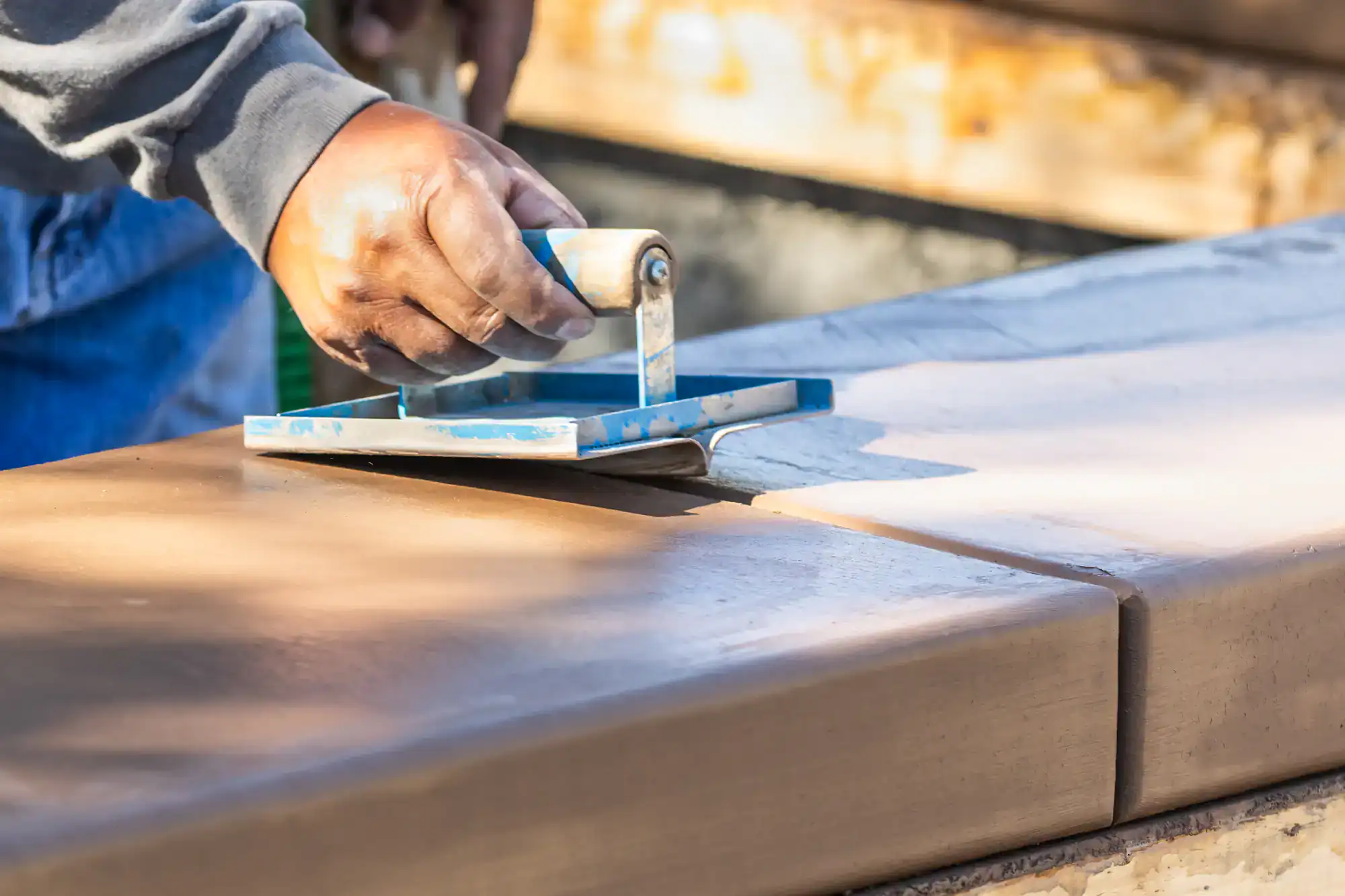
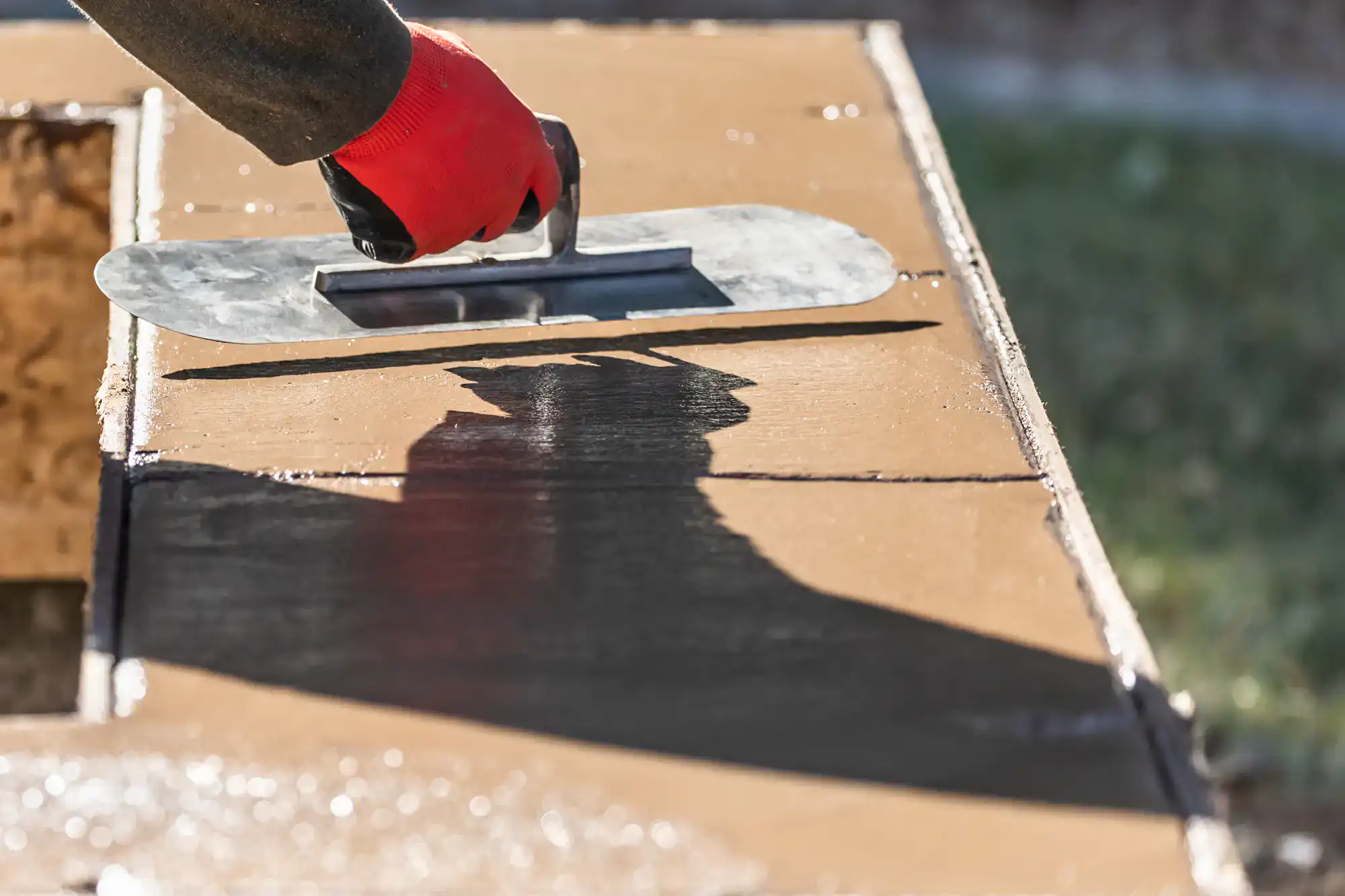
Your pool should be the centerpiece of relaxation, not a source of frustration. When you’re dealing with cracked concrete that pools water, stained surfaces that look dated, or scorching hot decking that burns bare feet during Florida summers, your backyard oasis becomes more like an eyesore.
Quality paver pool deck installation changes everything. You get slip-resistant surfaces that stay cool to the touch even in direct sunlight. Water drains properly instead of creating puddles and safety hazards. Individual pavers can be replaced if needed without tearing up your entire deck.
The result is a pool area that actually enhances your property value while giving you decades of worry-free enjoyment. No more avoiding your own backyard because the deck is too hot to walk on or too ugly to look at.
Since 1995, we’ve been the family-owned choice for homeowners who want their pool deck done right the first time. We’re not just another contractor passing through—we’re your neighbors, invested in this community for the long haul.
What sets us apart is our authorization from top paver manufacturers like Tremron, Flagstone, and Belgard, plus being the exclusive Seal ‘n Lock distributor in Citrus County. That means access to premium materials and proven installation methods that many contractors simply can’t offer.
You’re working with a team that gives back to the community through hurricane cleanup, supports local youth programs, and maintains active Chamber of Commerce membership. We understand Citrus Hills’ unique soil conditions, drainage requirements, and the specific challenges Florida weather presents to outdoor installations.
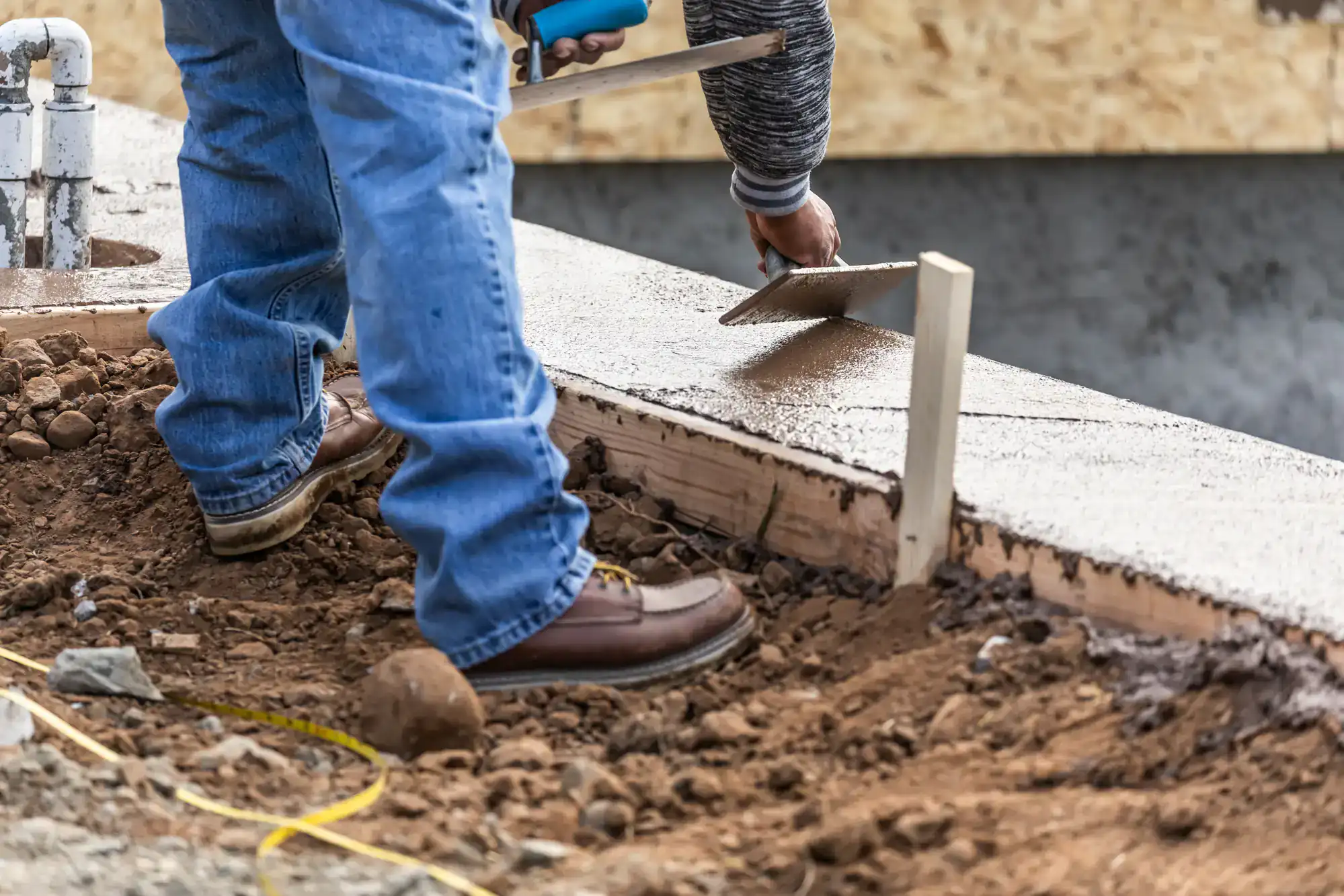
Our installation starts with proper site preparation—removing old concrete if needed and excavating to the correct depth. This isn’t a shortcut operation. We check soil conditions and install geotextile fabric when necessary to prevent future settling issues.
Next comes the foundation work that most homeowners never see but determines everything. Three to four inches of properly compacted road base gets installed per industry standards, followed by precise bedding sand leveling. This eliminates low spots that cause water pooling and ensures your pavers won’t sink or shift over time.
The paver installation itself involves careful attention to drainage slopes, proper edge restraints, and final compaction with polymeric sand. Every step follows proven methods that prevent the common problems you see with rushed installations—like pavers that settle unevenly or joints that fail within a few years.
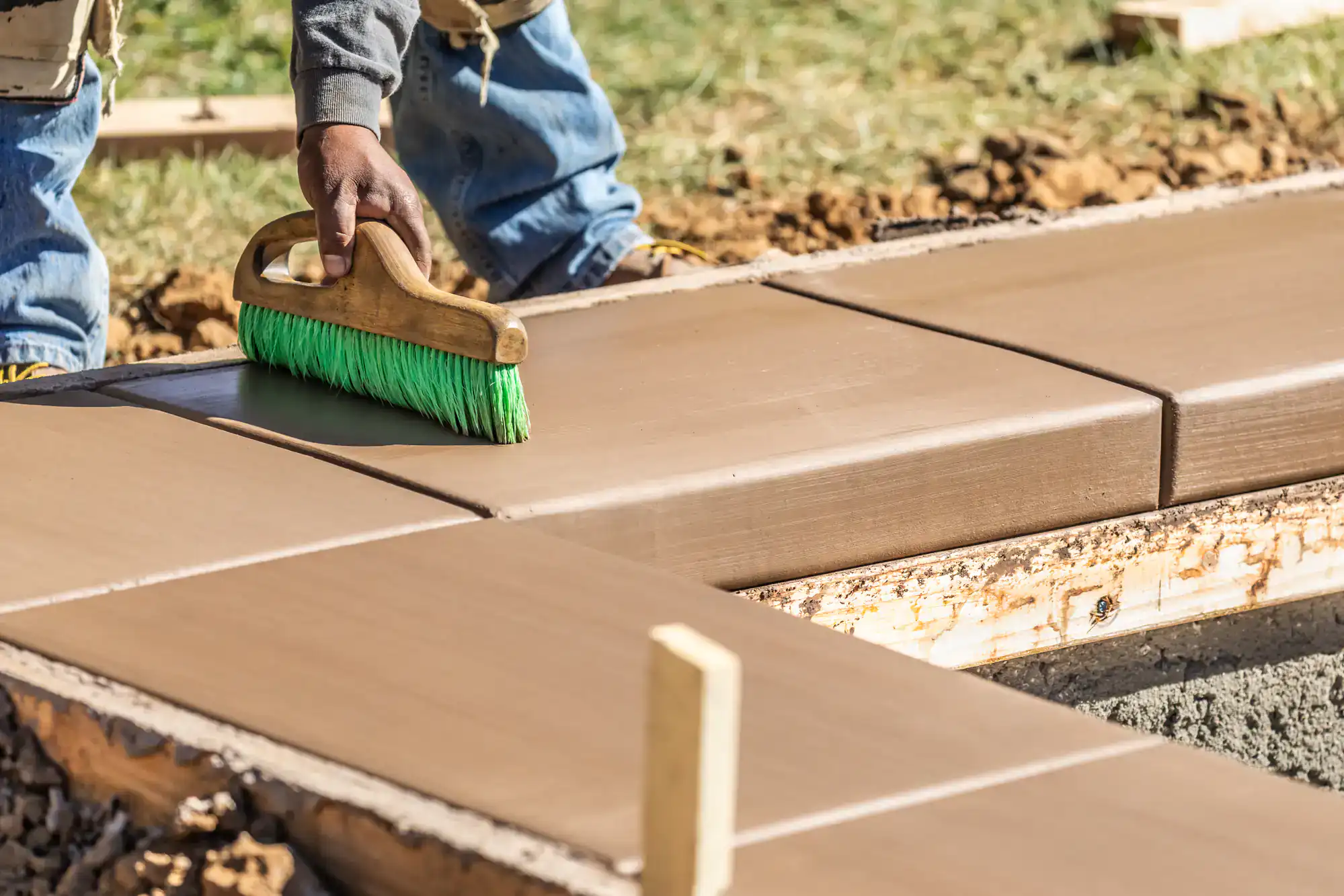
Ready to get started?
Citrus Hills homeowners have specific needs when it comes to pool decking. The area’s sandy soil and high water table require proper drainage solutions and materials that can handle ground movement without cracking. That’s why paver systems work so well here—they flex with natural soil shifts instead of fighting them.
Travertine remains the most popular choice for good reason. It stays cooler than concrete even in direct Florida sun, provides natural slip resistance when wet, and offers that timeless limestone look that complements both traditional and contemporary homes. Concrete pavers give you more color and pattern options while staying budget-friendly and equally durable.
For homeowners wanting something unique, flagstone and natural stone options create stunning custom designs that can last thirty years or more. The key is matching the right material to your specific situation—considering factors like your home’s architecture, existing landscaping, foot traffic patterns, and maintenance preferences. Each installation gets customized to work with Citrus Hills’ specific environmental conditions.
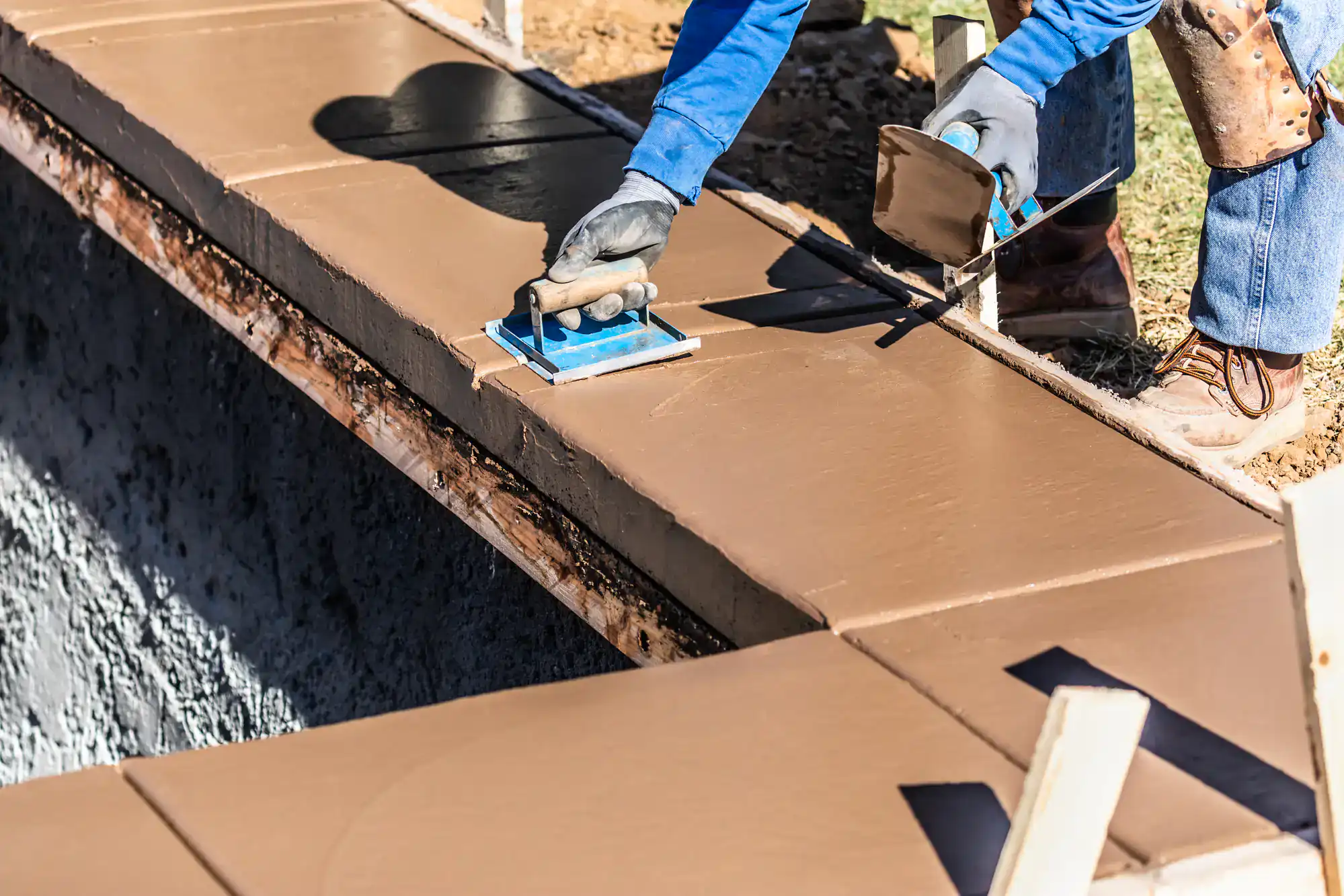
Pool deck costs in Citrus Hills typically range from $7,000 for basic concrete paver installations to $15,000-$20,000 for premium natural stone options. The final price depends on several factors including the size of your deck area, material choice, site conditions, and design complexity.
Travertine pavers usually fall in the middle range and offer excellent value—they stay cool underfoot, resist staining, and provide that upscale limestone appearance without the premium stone price tag. Concrete pavers are the most budget-friendly option while still delivering durability and design flexibility.
Keep in mind that proper installation is more important than material cost. A cheaper installation that fails within a few years ends up costing more than doing it right initially. Quality contractors factor in proper base preparation, drainage solutions, and materials that can handle Florida’s unique soil and weather conditions.
Yes, certain paver materials stay significantly cooler than concrete, especially important during Florida summers when concrete can become too hot for bare feet. Travertine and natural limestone pavers reflect more heat instead of absorbing it, keeping surface temperatures much more comfortable.
The color and texture of the material matters too. Lighter-colored pavers with natural textures tend to stay coolest, while smooth, dark surfaces absorb and retain more heat. This is why travertine has become so popular for pool decks—it combines cooling properties with slip resistance and attractive appearance.
Concrete pavers can also stay cooler than poured concrete depending on their composition and finish. The key is choosing materials specifically designed for pool deck applications rather than generic hardscaping products that weren’t engineered with barefoot comfort in mind.
One of the biggest advantages of paver pool decks is that individual pieces can be removed and replaced without affecting the surrounding area. If a paver gets cracked, stained, or damaged, you simply remove that specific piece, address any base issues if needed, and install a replacement.
This is completely different from concrete where a single crack often requires cutting out and replacing large sections, creating obvious patch marks that never quite match. With pavers, the repair is virtually invisible once complete since you’re using identical materials.
For staining issues, many stains can be cleaned with appropriate products, but if something proves permanent, replacement is straightforward and cost-effective. This makes pavers especially practical around pools where sunscreen, food, and drinks can occasionally cause spills that might stain other materials permanently.
Most residential pool deck paver installations in Citrus Hills take 3-5 days depending on the size and complexity of the project. This includes removal of existing concrete if needed, proper site preparation, base installation, paver laying, and final finishing work.
Weather can affect timing since certain steps like base compaction and polymeric sand installation need dry conditions to cure properly. Florida’s afternoon thunderstorms sometimes require scheduling flexibility, but we plan for this and communicate timing expectations upfront.
The installation timeline also depends on access to your backyard, soil conditions, and any custom design elements. Simple rectangular installations move faster than complex patterns or areas requiring significant drainage modifications. We won’t rush critical steps like base preparation just to meet arbitrary deadlines—proper curing and settling time ensures your deck performs well for decades.
Quality pool deck pavers are actually safer than smooth concrete, especially when wet. Most paver materials have naturally textured surfaces that provide better traction than polished concrete or tile. Travertine, flagstone, and properly finished concrete pavers all offer slip resistance that improves safety around pool areas.
The individual paver system also means no large cracks that could create tripping hazards as the deck ages. When properly installed with correct drainage slopes, water doesn’t pool on the surface creating slippery conditions. Instead, it drains efficiently between joints and away from walking areas.
For families with specific safety concerns, certain paver finishes can be selected for maximum slip resistance. Some manufacturers offer pavers with enhanced texture specifically designed for pool deck applications. The key is working with contractors who understand these safety considerations and can recommend appropriate materials for your family’s needs.
Pavers actually work better than concrete in Citrus Hills’ sandy soil conditions. The flexible paver system can accommodate the natural ground movement that occurs with sandy soils and high water tables, while concrete often cracks when the ground shifts.
Proper installation includes checking soil conditions and adding geotextile fabric when needed to prevent base materials from mixing with underlying sand. The multi-layer base system—compacted road base topped with bedding sand—creates a stable platform that distributes weight evenly and allows for natural drainage.
Citrus Hills’ drainage challenges are addressed through proper slope design and permeable joint systems that allow water to filter through rather than creating runoff problems. We understand these specific soil conditions and engineer installations accordingly, which is why choosing contractors familiar with the area makes such a difference in long-term performance.
Useful Links